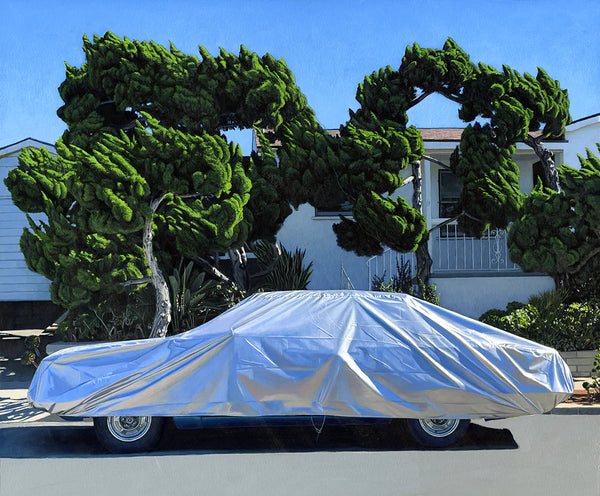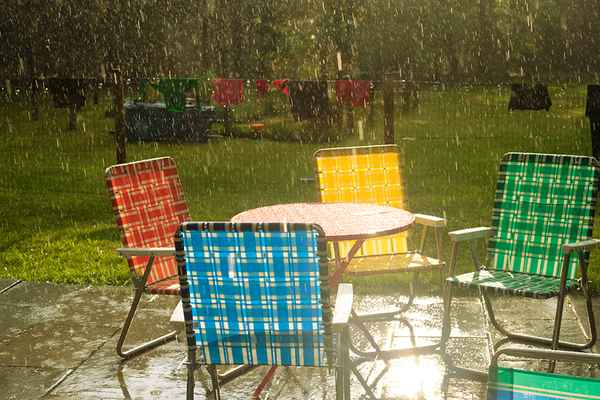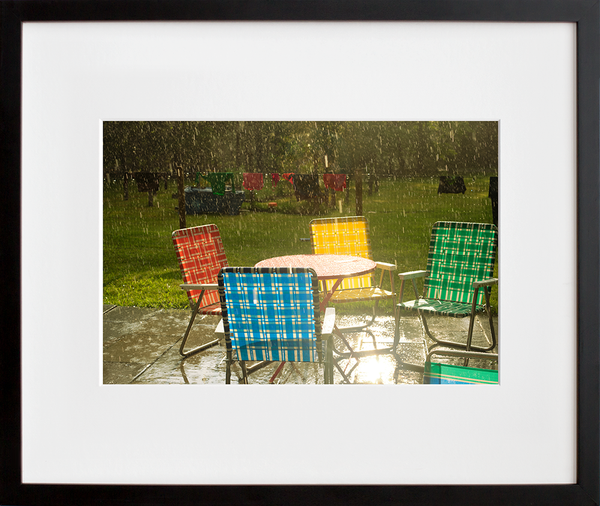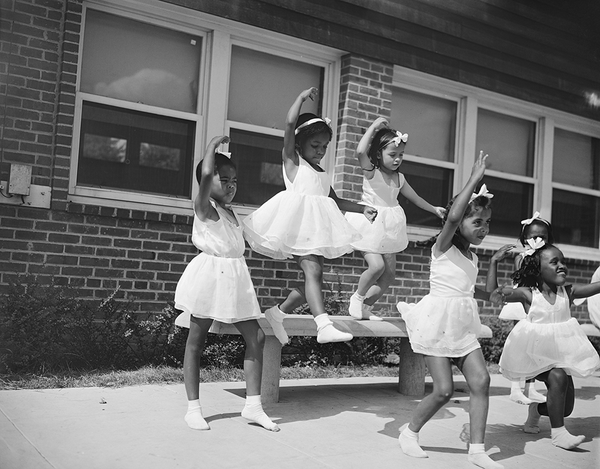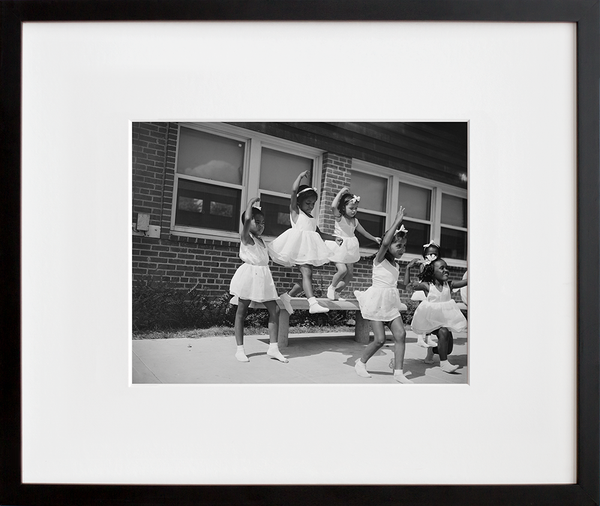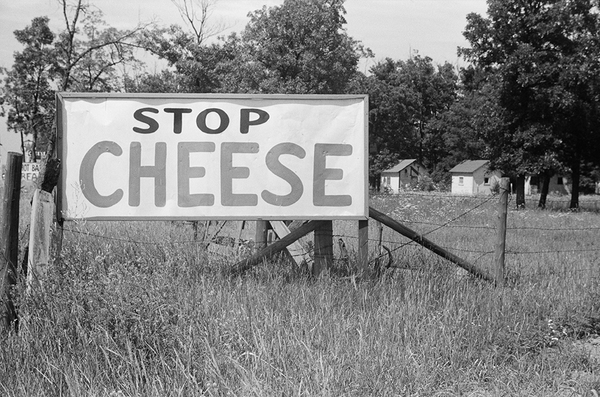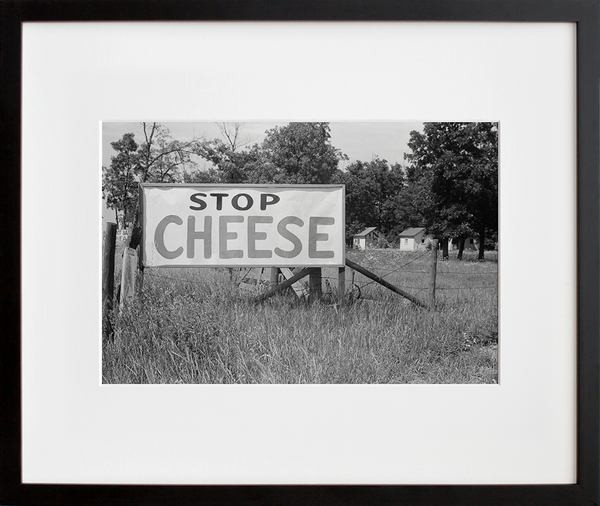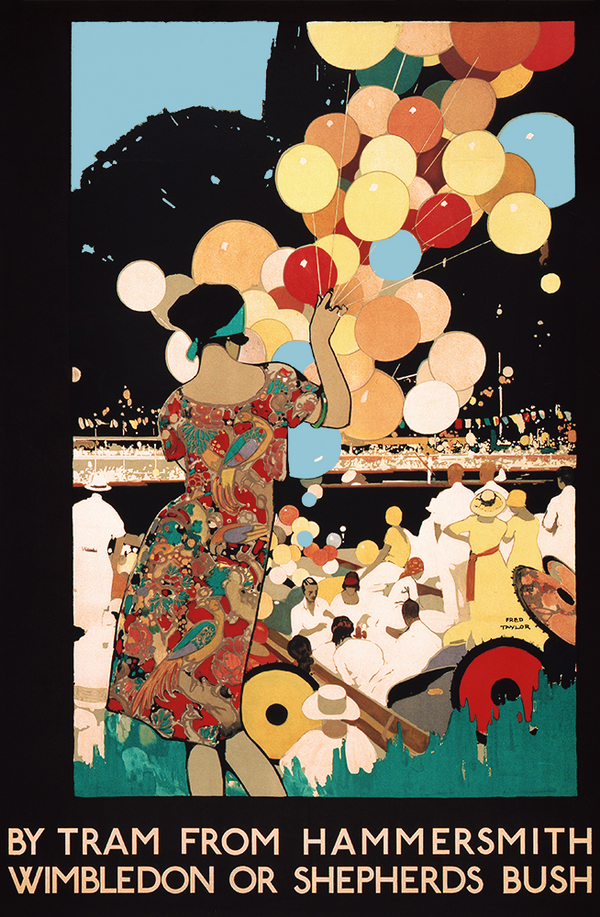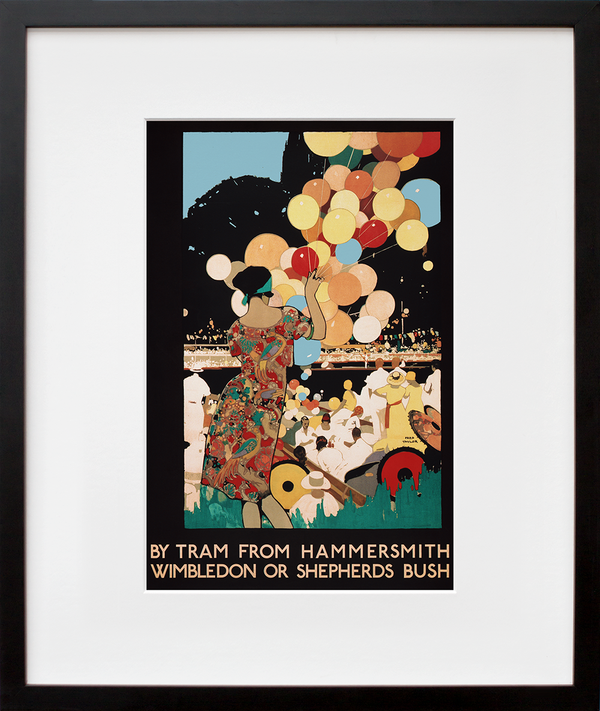
African American Women's Army Corps in the Snow, a 20x200 Vintage Edition
8"x10" ($35) | 11"x14" ($75) | 16"x20" ($260)
Collect this edition
We’re ready for a snow day, hbu? We'd probably be well served to slow our roll and wait for winter (cut to January when we’re complaining about the cold), but the mere thought of finding ourselves in a weekday flurry is a one-way ticket to nostalgia town that we can’t resist once the temps start to drop. Bundling up and venturing out into an average neighborhood turned winter wonderland, frolicking in a freshly frosted landscape—the quintessential snow day is an opportunity to embrace the best kind of kidlike joy, even for those of us who didn’t grow up somewhere it snows (you can thank classic holiday movies for that trip down memory lane).
Today’s new Vintage Edition captures that joy in black and white, starring a baker’s dozen of Black excellence—members of the unquestionably badass “Six Triple Eight” battalion that made history delivering happiness to countless service members during World War II. African American Women’s Army Corps in the Snow features some of the first members of the 6888th to return to the U.S., showing gleeful moment mid-snowball fight before the unit was officially disbanded a month later. This print is a wintery celebration for your walls, but it’s also an acknowledgement of this special battalion’s insanely hard work.
Upon entering World War II after Pearl Harbor, the US had to face facts: the participation of the female population was essential to the war effort. The Women’s Army Corps (WAC) was formed by President Roosevelt in July 1943 to fill crucial noncombat positions. Following the deployment of several units of all white women, civil rights leader Dr. Mary McLeod Bethune worked to engage friend and First Lady Eleanor Roosevelt in advocating for the admittance of African-American women. Black American newspapers backed this up, imploring the US Army to find meaningful roles for the wealth of talented Black women at the ready. Thus, the 6888th Central Postal Directory Battalion (a.k.a “Six Triple Eight”) was formed—the first and only all-Black female battalion to serve overseas during World War II.
The 6888th was made up of 855 Black women, both enlisted and officers, and led by Major Charity Adams Earley—the first Black woman officer in the WAC and the first to achieve the rank of Lieutenant Colonel in the U.S. Army, making her the highest ranking African-American woman in the Army by the end of the war. Earley and her team were tasked with clearing an enormous backlog of mail sent to service members, some of which went back three years. It was a massive undertaking, with mail stacked ceiling-high in makeshift post offices that were dimly lit, unheated, and home to rodents feasting on packages of spoiled snacks.
An entirely self-sufficient unit, the 6888th came up with their own system to contend with the backlog, working around the clock in three eight-hour shifts, seven days a week. Beginning in Birmingham, England and later Rouen, France, they managed to sort and redirect a stunning average of 65,000 pieces of mail per day, totaling almost seven million pieces in Birmingham alone. Given six months to complete each mission, they finished each in just three. In one famous anecdote, a white general attempted to send a white officer to tell them “how to do it right,” to which Earley replied, “Sir, over my dead body, sir!” (What a legend.) Also worth noting: the unit’s Military Police weren’t allowed to carry firearms, so the women trained in jiu jitsu to ward off unauthorized personnel. Did we mention they were badasses?
Processing and delivering mail was a public service and a meaningful morale booster for soldiers abroad, providing a lifeline to their loved ones back home. But the women in African American Women’s Army Corps in the Snow and their compatriots in the 6888th went beyond managing the mail—as the only contingent of Black women to serve overseas at the time, they represented so much more. Their presence shattered stereotypes and signaled the imperative of equality. There was no public appreciation of their service at that time, no ceremony or parades or official recognition of their incredible accomplishments, but we'd be thrilled if this print reminds anyone of the joy they spread. We hope these plucky women would be into this happy-making homage.


